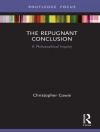This book outlines a theory of communication and justice for the digital age, updating classic positions in political philosophy and ethics, and engaging thinkers from Aristotle through Immanuel Kant and the American pragmatists to John Rawls, Jurgen Habermas, and Amartya Sen.In communication seeking to define justice and call out injustice, there is such a thing as the last word. The chapters in this book trace the historical emergence of communication as a human right; specify the technological resources and institutional frameworks necessary for exercising that right; and address some of the challenges following from digitalization that currently confront citizens, national regulators, and international agencies. Among the issues covered are public access to information archives past and present; local and global networks of communication as sources of personal identities and imagined communities; the ongoing reconfiguration of the press as a fourth branch of governance; and privacy as a precondition for individuals and collectives to live their lives according to plans, and to make their own histories.The book will be of interest to students and researchers in media and communication studies, cultural studies, political philosophy and ethics, and interdisciplinary fields examining the ethical and political implications of new information and communication infrastructures.
Klaus Bruhn Jensen
Theory of Communication and Justice [PDF ebook]
Theory of Communication and Justice [PDF ebook]
¡Compre este libro electrónico y obtenga 1 más GRATIS!
Idioma Inglés ● Formato PDF ● Páginas 318 ● ISBN 9781317614456 ● Editorial Taylor and Francis ● Publicado 2020 ● Descargable 3 veces ● Divisa EUR ● ID 7702921 ● Protección de copia Adobe DRM
Requiere lector de ebook con capacidad DRM












